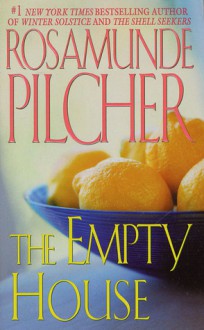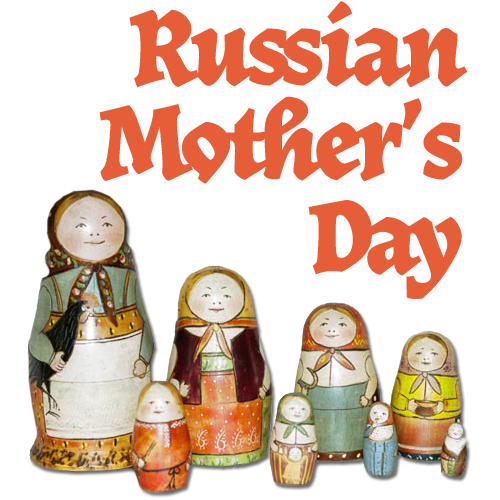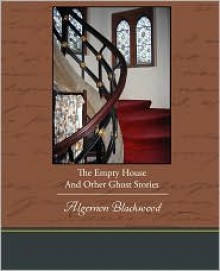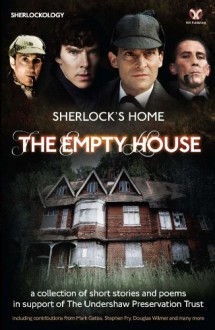
It didn't occur to me this would fit for any tasks until I recalled that the Russian Mother's Day book tasks said read a book if it involves a mother. Luckily for me, the main character in this one is a mother of two.
Wow. I just cannot. This book was published in 1971 so I tried to make allowances for the main character Virginia. I just gave up that at the point that she literally decides to move her two children, who just lost their father, to live in a place with a man that she talked to only twice in her life, more than 10 years ago.
I usually don't like to do spoiler reviews, but so great is my rage at this book, that I am going to do it.
So..."The Empty House" follows Virginia Keile. Virginia is visiting with an old friend of her mother's in Cornwall and essentially recovering from being made a widow at 27. Virginia has two young kids (a boy and girl) who are currently staying with her mother in law. It never seems to occur to Virginia that maybe she should be with her children by the way until the love interest pops up (I digress). This book really just goes into the backstory of Virigina and her love interest Eustace.
I hated almost every character in this one except for the kids and the poor mother in law. Virginia spends the book obsessing over Eustace. Though Virginia has been married for almost 10 years, she still wishes that Eustace had called her like he promised he would when she was visiting the family friends. She goes back and forth over everything and how even though she was 17 when she met his 28 year old self she fell for him. Their conversation was beyond boring and nothing of substance was even said. Sorry, the whole plot about her falling for him and he for her with the age differences just squicked me out. I would still argue how much did he fall for her though since the dialogue we get in this book is beyond boring. They just had two separate conversations.
Virginia's mother is made to be the villain of the piece since she wanted her daughter to marry well, and probably had qualms about a 28 year old farmer romancing her daughter. I also didn't like Eustace since he was rude to everyone in this one, but hey, I guess he had ethics or something. I don't know.
“Hallo,” said Eustace, meeting her eye with an unblinking blue gaze.
Her hand was half-way out to shake his, but Eustace either didn’t see this or chose to ignore it.
Mrs. Parsons’s hand dropped back to her side.
Her manner became, subtly, a fraction more cool.
Yeah, if I meet someone for the first time that is trying to romance my daughter and they pulled this, I would totally be cool to them too.
Eustace is just nasty to Virginia from what I can see. He calls her a terrible mother for not being with her children and having them come and stay with her. He acts like the kids father as soon as they meet (it was disconcerting). And then pretty much within like a freaking day Virginia is all we will stay here and live with you forever. Let's go tell the children.
“I don’t think you can give a damn for your children. You don’t want to be bothered with them. Someone else has always done the washing and the ironing and you’re not going to start now. You’re too bloody idle to take them for picnics and read them books and put them to bed. It’s really nothing to do with Bosithick. Whatever house you found, you’d be sure to find something wrong with it. Any excuse would do provided you never have to admit to yourself that you can’t be bloody bothered to take care of your own children.”
Literally hasn't seen her for 10 years and this comes up.
“Well, what am I going to eat?” Eustace caught the tail end of this conversation as he came, dripping, up the beach. “What’s this?” He stopped to pick up a towel. “I’m very hungry and Mummy hasn’t brought anything to eat.” “Too bad,” said Eustace unsympathetically.
I guess screw kids being hungry and actually wanting food. I just cannot.
The book tries to paint Virginia as a victim to her mother and dead husband, but I had zero sympathy for her. She signed up for everything she got and didn't really care about her husband. She wanted something that she thought she glimpsed when she was in Eustace's home for maybe an hour 10 years ago. It felt childish to me. She put out zero effort with other people and just continued to allow things to happen to her. I assume if there was ever a sequel that Virginia would find herself fully under Eustace's thumb. That is 100 percent not love.
The writing wasn't great. It just read as repetitive after a while. The dialogue between characters was stilted. The great reveal in the end about how Virginia was kept apart from her first love was beyond dumb. How she couldn't see that baffled me. Also who cares at this point?!
The flow was not good. I loved Piclher's other books so much and this one was just a dud. It was a chore to keep going since we had Virginia going back and forth about things and just generally acting like a victim the whole time.
The ending was ludicrous. She and her two kids are leaving Scotland forever to live with Eustace in Cornwall. I assume if there was an epilogue we would have heard how the mother in law tried to fight for custody or something.


 Log in with Facebook
Log in with Facebook 









